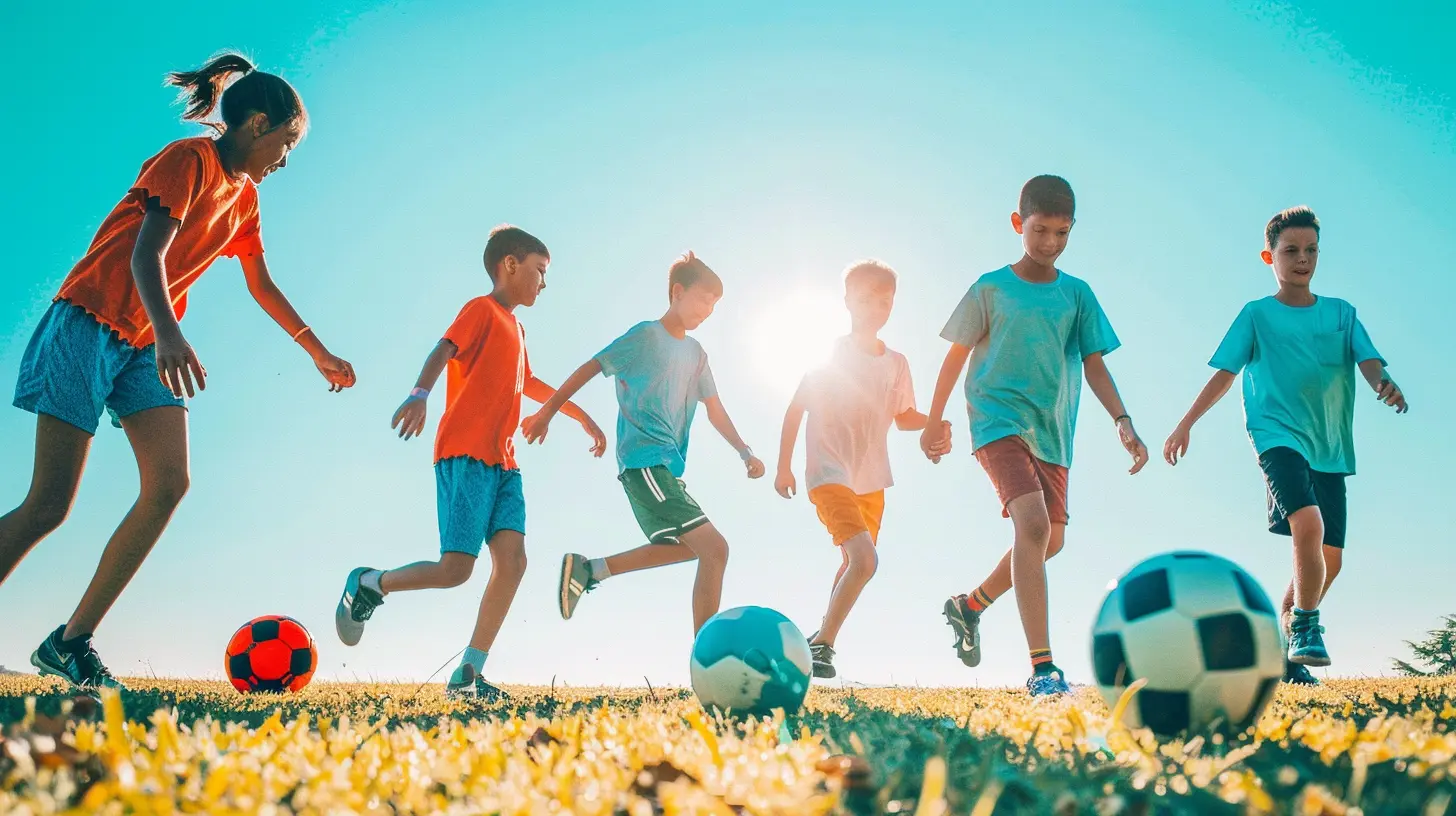20 February 2025
When it comes to youth sports, there’s one relationship that often gets overlooked but can play a crucial role in a child’s development: the relationship between parents and coaches. A strong connection between these two parties can help create a positive, supportive environment where players can thrive. But if this relationship becomes strained, it can lead to frustration, tension, and even conflict.
Whether you're a new coach, an experienced one, or a parent navigating the world of youth sports, understanding how to manage the parent-coach relationship is vital. Let’s dive into this topic and explore ways to establish healthy communication, set clear boundaries, and avoid unnecessary drama.

Why is the Parent-Coach Relationship Important?
When you think about it, parents and coaches are both working toward the same goal: helping the athlete succeed and enjoy the sport. But they approach it from different angles.Parents are the ones who see the child at home, know their personality inside and out, and have a vested interest in their well-being. Coaches, on the other hand, are there to guide the child in a team setting, focusing on skill development, teamwork, and competition. Both have valuable insights, but their perspectives may sometimes clash.
A strong parent-coach relationship is essential because it:
- Creates a Supportive Environment: When coaches and parents are on the same page, the child feels a sense of consistency and support, both on and off the field.
- Reduces Misunderstandings: Clear communication helps avoid any confusion or mixed signals, whether it’s about playing time, expectations, or performance.
- Boosts Player Confidence: When players see that their coach and parents are aligned, they feel more secure in their role and abilities.
- Minimizes Stress: Let’s be honest—sports can be stressful enough without adding unnecessary tension between adults. A harmonious relationship helps keep the focus where it belongs: on the kids.
Now that the importance of this relationship is clear, let’s look at ways to foster a healthy dynamic.

Setting Clear Expectations From the Start
One of the best ways to avoid issues down the road is to set expectations early on. This means having an open and honest conversation at the beginning of the season, where all parties understand what’s expected of them.Coaches: Lay Down the Ground Rules
As a coach, you’re the leader of the team, and it’s your job to establish guidelines that ensure the season runs smoothly. This includes:- Team Policies: Let parents know what’s expected regarding attendance, punctuality, and behavior. This is the time to explain your approach to playing time, practice schedules, and game strategy.
- Communication Protocol: Make it clear how and when parents can contact you. Are you open to emails? Do you prefer face-to-face conversations after practice? Setting communication boundaries early can prevent misunderstandings later.
- Role of Parents: Be upfront about how parents can support the team. Encourage them to be positive role models, both on the sidelines and off. Whether it’s cheering from the stands or volunteering for team duties, let parents know how they can contribute without overstepping.
Parents: Understand Your Role
For parents, it’s equally important to understand your role in the team dynamic. Sure, you want the best for your child, but youth sports should be about more than just winning games. It’s about learning life skills like teamwork, perseverance, and handling adversity.- Trust the Coach: Coaches are trained to guide your child in their athletic development. Even if you don’t agree with every decision, it’s important to trust their judgment and expertise.
- Stay Positive: Your child is watching how you react, and your attitude can have a significant impact on their experience. Stay positive, even if things don’t go the way you hoped. Remember, there’s more to sports than the scoreboard.
- Communicate Respectfully: If you have concerns, address them in private and in a calm, respectful manner. Avoid confrontations at games or practices, as these can be embarrassing for your child and disruptive to the team.

Effective Communication: The Key to Success
Let’s face it—communication is the foundation of any successful relationship, and the parent-coach dynamic is no different. But here’s the tricky part: not everyone communicates the same way. Some parents may want frequent updates about their child’s progress, while others are more hands-off.Coaches: Be Proactive
If you’re a coach, don’t wait for parents to come to you with questions or concerns. Be proactive about keeping the lines of communication open.- Team Meetings: Hold regular team meetings or send out newsletters to keep parents informed about schedules, upcoming events, and any changes to team policies.
- Individual Updates: Consider providing periodic updates on each player’s progress. This doesn’t have to be formal or time-consuming—just a quick note about how their child is doing can go a long way in building trust.
Parents: Know When to Step Back
Parents, it’s natural to want to be involved, but it’s also important to know when to step back and let the coach do their job.- Avoid Sideline Coaching: Yelling instructions from the sidelines can confuse your child and undermine the coach’s authority. Let the coach handle the game, and focus on being a supportive spectator.
- Handle Concerns Privately: If you have an issue with the coach, bring it up in private. Airing grievances in front of other parents, players, or coaches can create unnecessary drama and tension.

Dealing with Conflict
Despite everyone’s best efforts, conflicts can arise between parents and coaches. Maybe a parent feels their child isn’t getting enough playing time, or perhaps a coach is frustrated with a parent’s behavior. Whatever the issue, it’s important to handle conflict in a constructive and respectful manner.Coaches: Address Issues Early
If you notice a problem brewing, address it early before it has a chance to escalate.- Private Conversations: Pull the parent aside for a one-on-one conversation. Be calm, listen to their concerns, and explain your perspective. Often, misunderstandings can be cleared up with a simple conversation.
- Stay Professional: It’s easy to get defensive when someone criticizes your coaching. But remember, your goal is to keep the focus on the athlete’s well-being. Stay professional, even if the parent becomes emotional or confrontational.
Parents: Keep Things in Perspective
As a parent, it’s important to keep things in perspective. Youth sports are just that—youth sports. They’re not the be-all and end-all of your child’s future.- Choose Your Battles: Not every issue is worth fighting over. If your child is happy and learning, consider letting minor disagreements slide.
- Encourage Open Dialogue: Encourage your child to communicate with their coach directly. This helps them develop independence and problem-solving skills, and it also takes some of the pressure off you.
The Athlete’s Role in the Parent-Coach Relationship
It’s easy to forget that the athlete is at the center of this relationship. While parents and coaches are focused on what’s best for the child, it’s essential to give the athlete some agency in the process.Encourage Self-Advocacy
Players should feel comfortable speaking up for themselves. If they’re unhappy with their role on the team or have concerns about their development, they should be encouraged to talk to their coach directly. This not only fosters independence but also helps players take responsibility for their own growth.Avoid Putting the Child in the Middle
Parents and coaches should avoid putting the child in the middle of any disagreements. If there’s an issue, handle it between the adults. The last thing a young athlete needs is to feel like they have to choose sides or mediate between their coach and their parent.Building a Strong Partnership
At the end of the day, the parent-coach relationship should be a partnership. Both sides have the same goal: to help the athlete succeed, grow, and enjoy their sport. By setting clear expectations, communicating effectively, and handling conflicts with respect, parents and coaches can build a strong, positive relationship that benefits everyone involved.Remember, it’s not just about winning games or scoring points. It’s about creating an environment where young athletes can develop confidence, learn new skills, and discover a lifelong love of sports. And that’s something both parents and coaches can work toward together.











Yvonne Love
Great insights! Building a positive relationship between parents and coaches is essential for youth sports.
March 31, 2025 at 7:07 PM